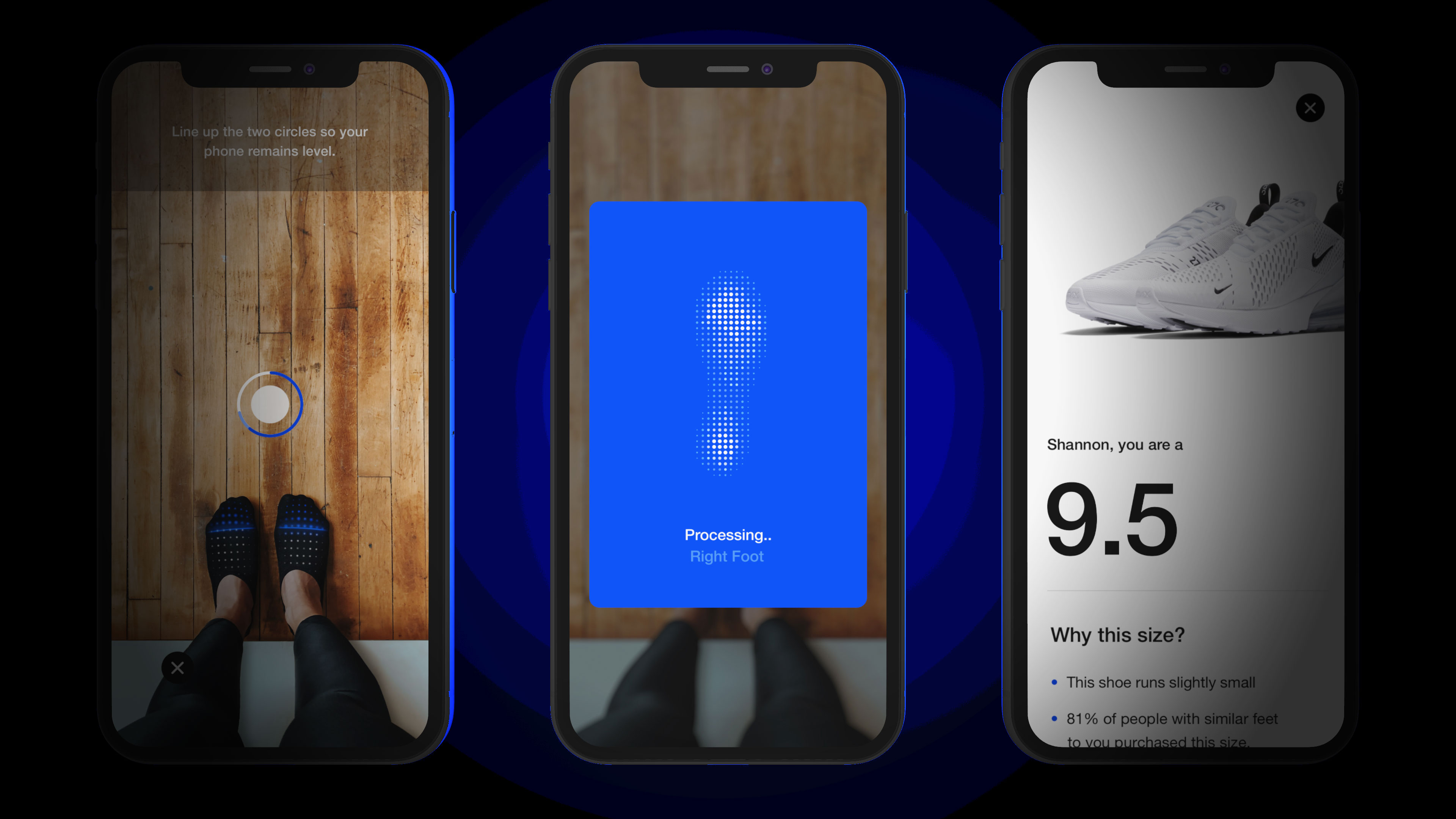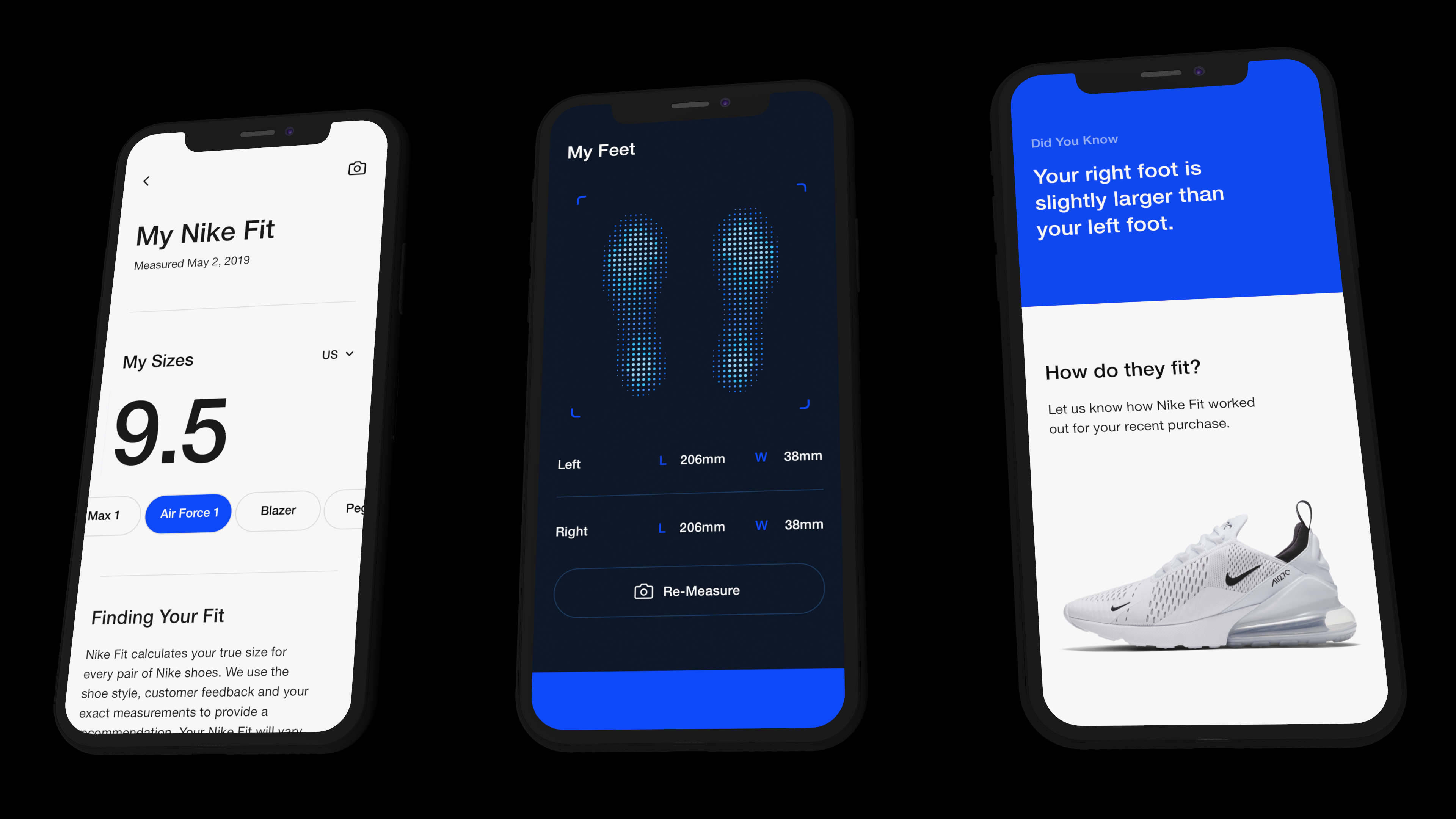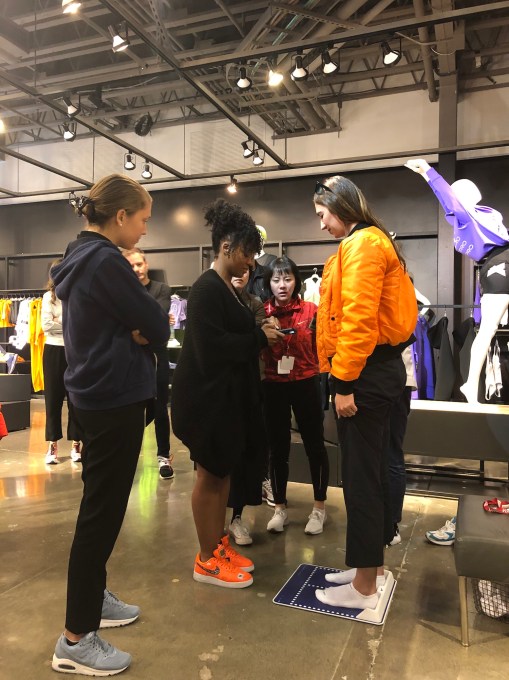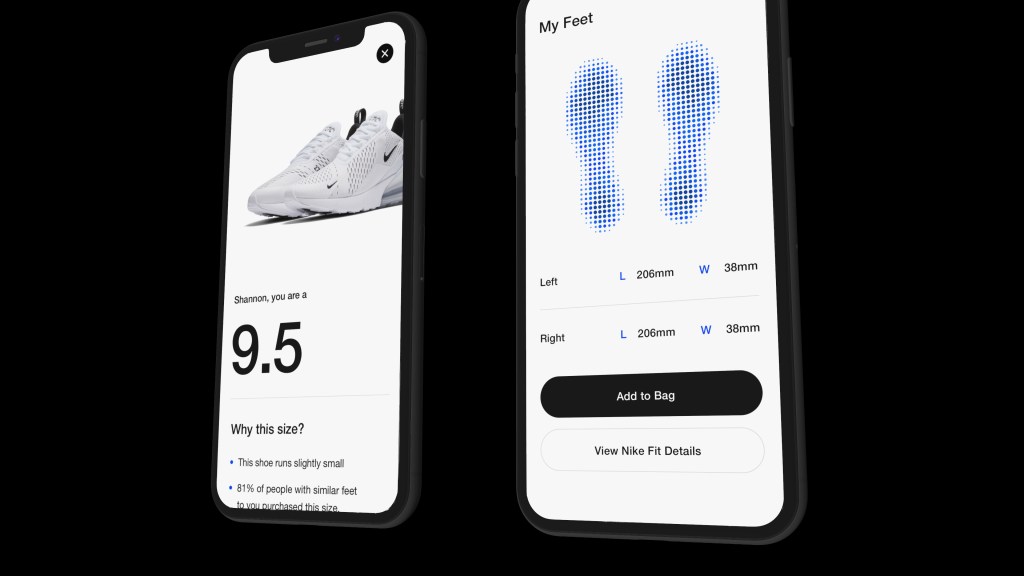Rae Witte
More posts from Rae Witte
In 1927, Charles Brannock, the son of a local shoe company owner in Syracuse, N.Y., invented the Brannock Device. The steel measurement tool with five scales has been the most effective way in the U.S. to find an accurate shoe size.
Industry-wide, 60% of consumers are wearing the wrong-sized shoes. Not only is there a discrepancy among different styles of shoes (high heels to leather boots), sizing can often differ from brand to brand within one type of shoe (like adidas sneakers to Nike sneakers) and even silhouette to silhouette within a singular brand.
For instance, I’ve owned Nike React Epic sneakers with Flyknit technology in a women’s size 10. I have men’s suede Nike Air Max 95s in a 9.5. All of my men’s Air Jordan 1s are comfortably a men’s size 8.5, but I have a women’s pair in an 11, and my Air Jordan 4s are an 8. Meanwhile, my Nike Air Max 720s feel decidedly too small at a men’s 8.5. And this is all within one brand.
During the 92 years since its introduction, the birth of the internet, and some other society-altering technological advances, the Brannock Device has somehow remained uncontested. Until now.
This summer, Nike will introduce Nike Fit, a foot-scanning solution designed to find every person’s best fit. Conceptually, Nike Fit falls somewhere between “why would we reinvent the wheel” and “we don’t even need that wheel.”
Nike Fit uses a proprietary combination of computer vision, data science, machine learning, artificial intelligence and recommendation algorithms to find your right fit. With sub two-millimeter accuracy through dozens of data points, measurements are fed into the machine learning model that accommodates every detail of every Nike silhouette down to the materials that were used, the lacing systems and other critical aspects of fit. This is then paired with AI capabilities to learn a wearer’s personal fit preference and how they relate to the population as a whole.
Users can either find their size with the augmented reality feature in the Nike app or, soon, visit participating stores to use the technology. I recently had the opportunity to do both.
Within the Nike app, I used my phone’s camera to capture an empty space where the floor meets the wall as a point of reference, with the app’s guidance ensuring a level plane. I stood with my heels against the wall I captured as my reference point and pointed the camera down at my feet as if to take a photo. Once my feet were properly aligned with the outline guide within the app, I simply touched the button that looks just like I’m taking a photo.

In seconds, this action scans the feet and collects 13 data points, the best of the 32 points Nike is capable of capturing. Despite all of the data being collected, users will only be offered the length and width measurements, down to the millimeter, of each foot individually.
“Augmented reality is a new type of experience for a lot of consumers and sets a lot of challenges for them,” says Josh Moore, Nike’s vice president of design and user experience. “We’ve been doing a lot of experiments and creating new features in our SNKRS app over the last few years where we really learned a lot about how to use augmented reality successfully. Specifically, we know we have to guide our users through the journey at their own pace so they can comprehend as they go.”
“We’re talking about phones with cameras measuring your feet,” Moore continues. “It’s a new type of experience where you’re using your device, the device’s camera, the 3D space around you, and you’re using your body. There’s no common UX pattern for this.”

The in-store experience differs in a few ways. It wasn’t enough to simply have great technology, it also had to reduce friction within the in-store buying process. The idea is to reduce the amount of time associates spend going back and forth grabbing sizes from the stock room in order to ensure time spent with customers is higher quality and more efficient.
At the Retail Lab on Nike’s campus, I stood on a mat while a Nike sales associate scanned my feet with a handheld iTouch device. With the measurements taken (my right foot is 1 millimeter longer than my left, while my left is 1 millimeter wider than my right), the associate can provide a range of sizes for me, which includes where my best fit could fall in any shoe in Nike’s catalog. Once they look up the shoe I’m interested in, the app will offer the best fit size for my measurements and that shoe. If it’s available, they’ll bring out that size, and if there is any disbelief, they’ll bring out the size you’d like to try, as well.

Whether using the app to find the right fit and make a purchase or going into the store, associates and customers can record which size is purchased, as well as other personal preferences around fit.
“Before a shoe arrives onto the market, it will already be trained into the solution. But since the solution encompasses both machine learning and AI, its accuracy out of the gate is astonishing and just gets even better,” says Michael Martin, vice president of Nike direct products, growth and innovation.
With more data, Nike will not only have continual improvements of an individual’s fit preferences, it will also learn the greater population’s preferences around each specific model, offering insight on creating better-fitting shoes.
In development for just over 12 months, Nike Fit was being tested in three stores — one each in Seattle, Dallas and Pasadena, Calif. — only six months after Nike acquired Israeli startup, Invertex, whose entire mission was to create scans of the human body for better fit customization.
“Fundamentally, at this stage, Nike is a technology company. It’s a technology company that builds upon its historical strengths in footwear design, storytelling and inspiration, and it’s able to use those in combination to solve problems that no one else can solve,” says Martin. “We think this is arguably our biggest solution to date.”
Despite being for footwear right now, the technology created for Nike Fit has the potential to change retail in a lot of ways. One can imagine women being able to use the tech to find the right bra size. It could also make buying denim easier. As individualism and inclusivity have become marketing tools, custom fit seems like a natural next step, but until now, there hasn’t been a clear-cut solution.
Nike Fit will be introduced in select stores in the U.S. and within the Nike app in early July 2019, with Europe to follow later in the summer.
Nike has always had a place in the conversation alongside the likes of Apple when upper echelon branding and storytelling is discussed. With the introduction of Nike Fit, Nike just does it — again.































Comment